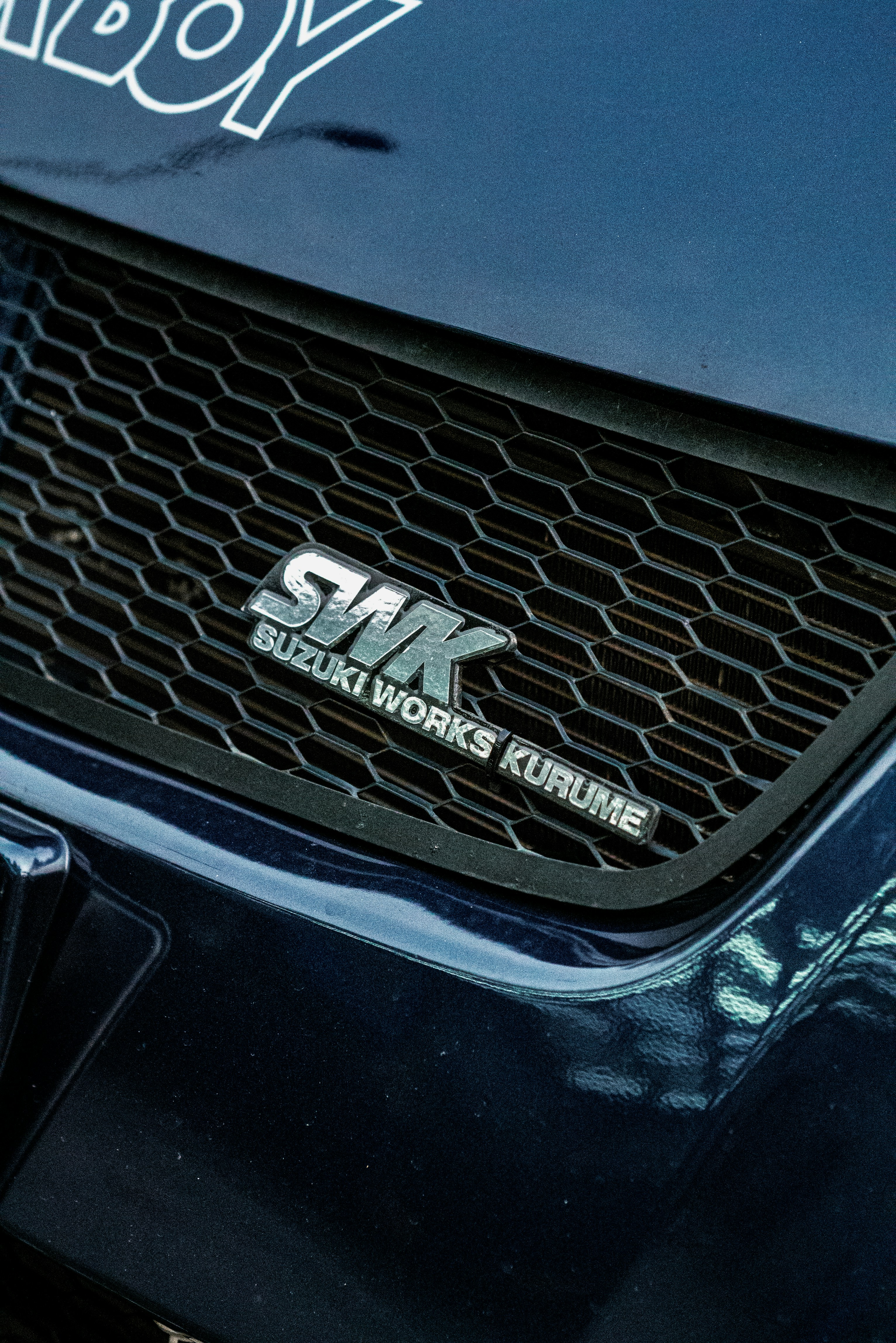
Introduction to Hyundai Group and Suzuki Motor Corporation
Hyundai Group and Suzuki Motor Corporation stand as key players in the global automotive industry, each with a unique history, core values, and mission statements that shape their operations and influence. Established in 1967, Hyundai Group has evolved into one of the largest automotive manufacturers in the world, driven by a commitment to quality, innovation, and customer satisfaction. Their mission emphasizes the importance of advancing technology while ensuring the delivery of safe and environmentally friendly vehicles. This ambition aligns with their persistent pursuit of sustainable practices, marking them as a forward-thinking entity in the automotive landscape.
In contrast, the Suzuki Motor Corporation was founded in 1909, initially focusing on loom manufacturing before transitioning into the automotive sector in the 1950s. Suzuki has established itself as a brand synonymous with compact cars and motorcycles, offering reliable vehicles at competitive prices. Their core values revolve around providing high quality and efficient mobility solutions that cater to diverse markets worldwide. This dedication to affordability and practicality highlights Suzuki’s intent to empower consumers by delivering dependable and user-friendly automotive experiences.
Both Hyundai Group and Suzuki Motor Corporation have made significant contributions to the automotive industry, extending their reach across various continents. With headquarters in South Korea and Japan respectively, both companies have created world-class manufacturing facilities and robust supply chains, enhancing their operational capabilities. Moreover, their commitment to advancing technology through research and development has seen both companies unveil innovative features that elevate user experience and vehicle performance.
Their pursuit of innovation is complemented by efforts in sustainability, where they aim to reduce environmental impact through eco-friendly practices and electric vehicle offerings. As we delve deeper into the comparative analysis of Hyundai Group and Suzuki Motor Corporation, it becomes evident that both entities not only lead in terms of production and sales but also stand as examples of responsible corporate citizenship in the ever-evolving automotive sector.
Overview of Hyundai Group’s Automotive Division
Hyundai Group, a dominant player in the automotive industry, has carved a significant niche with its diverse range of vehicles. The group offers an extensive array of automobiles, encompassing sedans, SUVs, electric vehicles, and hybrids. Each category showcases a unique blend of innovation, design, and technology tailored to meet the evolving needs of consumers.
Among the notable sedans, the Hyundai Sonata stands out with its sophisticated design, advanced safety features, and fuel efficiency. This model has been well-received in various markets, including North America and Asia, primarily due to its modern aesthetics and user-friendly technology. Similarly, the Hyundai Elantra has gained popularity thanks to its compact size, making it an ideal choice for urban drivers while also providing a comfortable ride.
The SUV segment is also a focal point for Hyundai Group, with models such as the Hyundai Tucson and Santa Fe. The Tucson integrates cutting-edge safety technologies with spacious interiors, attracting those looking for both family-friendly and stylish options. Meanwhile, the Santa Fe has established itself as a versatile midsize SUV, appealing to consumers with its robust performance and comprehensive suite of features.
Hyundai Group is notably advancing in the fields of electric and hybrid vehicles, aligning with global trends towards sustainability. Their electric vehicle lineup, including the Hyundai Ioniq and Kona Electric, reflects a commitment to reducing carbon footprints while still delivering exceptional performance and practicality. The company’s partnerships with various technology firms further enhance its capabilities in producing state-of-the-art electric vehicles.
In summary, Hyundai Group’s automotive division stands out due to its diverse vehicle offerings, significant emphasis on technology, and innovative approaches within the automotive landscape. With a continued focus on sustainability and technological advancements, the group’s vehicles are poised to cater to a broad range of consumer preferences.
Exploring Suzuki Motor Corporation’s Offerings
Suzuki Motor Corporation is a notable contender in the automotive industry, particularly known for its innovative approach to manufacturing a wide range of vehicles. The company specializes in producing compact cars, motorcycles, and all-terrain vehicles, catering to diverse consumer needs across the globe. One of Suzuki’s key strengths lies in its emphasis on designing small cars that excel in fuel efficiency, making them an attractive option for environmentally conscious consumers.
In the compact car segment, Suzuki has established a reputation for developing models that combine practicality with style. Models such as the Suzuki Swift and Alto highlight the company’s commitment to producing affordable vehicles without compromising on quality or performance. These cars are particularly well-received in urban markets where space and fuel economy are paramount. The compact design of these vehicles allows for easy maneuverability in crowded city settings, which appeals to a growing demographic of young urban dwellers.
Additionally, Suzuki Motor Corporation is recognized for its expansive range of motorcycles, catering to both recreational and practical needs. From sporty bikes that appeal to thrill-seekers to more utilitarian models suited for everyday transportation, Suzuki’s motorcycle offerings reflect the company’s versatility. Their all-terrain vehicles also stand out, designed to withstand the rigors of off-road environments and provide durable performance for adventurous enthusiasts.
The latest models launched by Suzuki, including the refreshed iterations of their popular cars, have garnered positive reception in various markets. Emphasizing features like advanced safety technology and eco-friendly engines, these vehicles demonstrate Suzuki’s commitment to adapting to evolving consumer preferences while remaining competitive against rivals, such as the Hyundai Group. Overall, Suzuki Motor Corporation continues to solidify its presence in the automotive sector, driven by innovation and a keen understanding of market demands.
Technological Advancements in Hyundai Cars
In recent years, Hyundai Group has made significant strides in technological innovation within the automotive industry. The incorporation of cutting-edge technologies into their vehicles has allowed Hyundai to enhance safety, efficiency, and user experience. A focal point of their advancements lies in the realm of safety features, where Hyundai consistently integrates state-of-the-art systems designed to protect both the driver and passengers. For instance, advanced driver-assistance systems (ADAS) such as lane keeping assist, adaptive cruise control, and automatic emergency braking are becoming standard across many Hyundai models.
Additionally, infotainment systems in Hyundai vehicles showcase the brand’s commitment to technological integration. Modern Hyundai cars are equipped with sophisticated touchscreen displays, seamless smartphone connectivity, and intelligent voice recognition systems. Such features not only facilitate entertainment and navigation but also improve overall user engagement with the vehicle. The focus on user-centered design ensures that drivers can easily interact with these technologies while maintaining control and attention on the road.
Moreover, autonomous driving capabilities are at the forefront of Hyundai’s vision for the future. The company has invested extensively in research and development to advance its autonomous vehicle technology. By leveraging artificial intelligence and machine learning, Hyundai aims to create vehicles that can intelligently assess their surroundings and respond accordingly. This journey toward full autonomy reflects Hyundai’s ambition to revolutionize transportation by prioritizing safety, efficiency, and convenience.
Hyundai Group’s dedication to innovation is further underscored by their partnerships with global tech companies and renowned institutions, including the University of Miami. Such collaboration fosters a rich environment for developing smart technologies, ultimately enhancing Hyundai’s offerings. With continuous improvement in these areas, Hyundai remains well-positioned to lead the automotive industry into a new era where technology elevates the driving experience.
Suzuki’s Approach to Innovation and Sustainability
Suzuki Motor Corporation has consistently demonstrated a commitment to innovation and sustainability within the automotive sector. As global awareness of environmental issues grows, the company has taken proactive measures to reduce carbon emissions while enhancing the efficiency of its vehicles. Adopting fuel-efficient technologies is a cornerstone of Suzuki’s strategy, showcasing their dedication to creating vehicles that align with modern ecological standards.
One of the primary focuses of Suzuki is the development of compact and lightweight vehicles that consume less fuel, thereby lessening their overall carbon footprint. This thrust towards efficiency does not merely address traditional fuel-powered vehicles; the company is also heavily investing in electric vehicle (EV) technology. Suzuki’s ongoing research and development in the EV space showcases its commitment to not only maintaining its competitive edge but also contributing to greener transportation solutions.
In addition to its advancements in fuel efficiency and electrification, Suzuki Motor Corporation has implemented several manufacturing practices designed to promote sustainability. These practices include reducing resource consumption in production processes and minimizing waste, which exemplifies Suzuki’s holistic approach to eco-friendliness. The integration of renewable energy sources in their manufacturing facilities further underscores the corporation’s commitment to a sustainable future.
Furthermore, collaborations and partnerships with institutions such as the University of Miami enhance Suzuki’s innovative capabilities. These partnerships allow the company access to cutting-edge research and technology, driving their initiatives towards sustainable practices. By embracing innovation and remaining adaptive to industry changes, Suzuki Motor Corporation continues to set a standard for environmental responsibility within the automotive landscape, contributing to a future where efficiency and sustainability coexist.
Market Positioning and Global Reach
Hyundai Group and Suzuki Motor Corporation are two prominent players in the global automotive market, each with distinct strategies for market positioning and outreach. Hyundai Group, originating from South Korea, has made significant strides in various markets by adopting a broad target demographic that includes families, young professionals, and eco-conscious consumers. Its strategy encompasses a diverse product lineup ranging from affordable compact cars to cutting-edge electric vehicles, catering to evolving consumer preferences.
On the other hand, Suzuki Motor Corporation, headquartered in Japan, has carved a niche in small car manufacturing and is particularly well-regarded for its compact and highly efficient vehicles. By focusing primarily on markets in Asia, Suzuki has effectively positioned itself to appeal to consumers seeking value and reliability in urban settings. This strategy has allowed the company to maintain a loyal customer base in emerging markets, where the demand for economical vehicles is on the rise.
In terms of global reach, both companies have established substantial manufacturing facilities and dealer networks across various regions. Hyundai’s global footprint includes extensive operations in North America, Europe, and Asia. The company’s investment in research and development at locations such as the University of Miami shows its commitment to innovation in automotive technology. Similarly, Suzuki’s ability to adapt its vehicles for local markets has been a key factor in its success, allowing it to respond to consumer preferences effectively.
Sales figures reflect the impact of their strategies. Hyundai Group has seen significant sales increases in electric and hybrid models, driven by growing environmental consciousness among consumers. Conversely, Suzuki’s emphasis on small vehicles has propelled its sales in markets that prioritize fuel efficiency and affordability. With an ongoing commitment to understanding consumer needs and adapting to local markets, both Hyundai Group and Suzuki Motor Corporation are positioned to maintain and expand their presence in the competitive automotive landscape.
Customer Perception and Brand Loyalty
Understanding customer perception and brand loyalty for manufacturers such as Hyundai Group and Suzuki Motor Corporation is vital in assessing their market position and future growth trajectories. Both companies have established reputations, but they cater to distinct consumer segments, and their approaches to brand loyalty differ significantly.
Surveys conducted among vehicle owners consistently show that Hyundai Group is often recognized for its value proposition, technological advancements, and noteworthy customer service. Consumers have indicated satisfaction with the quality of vehicles, particularly in terms of safety and warranty offerings. The feedback from studies demonstrates that Hyundai’s commitment to innovation in design and performance significantly enhances customer loyalty. This sentiment is bolstered by its ongoing efforts in sustainability and electric vehicle development, aligning with the growing consumer demand for eco-friendly options.
On the other hand, Suzuki Motor Corporation benefits from a reputation for durability and reliability. Many customers express a keen appreciation for the brand’s straightforward design and fuel-efficient models, which appeal to a demographic looking for practicality without excessive frills. The robust after-sales support provided by Suzuki has also been acknowledged in customer feedback, ensuring a loyal customer base that is both satisfied with their purchase and likely to return for future transactions.
Brand loyalty for both Hyundai Group and Suzuki Motor Corporation is influenced by various factors, including the quality of the vehicles, the reliability and effectiveness of customer service, and ongoing engagement through loyalty programs. Additionally, the impact of social media and online forums cannot be overlooked, as potential buyers often turn to platforms for insights on reliability and performance before making purchasing decisions.
Ultimately, consumer sentiment is shaped by ongoing product performance and the ability of manufacturers to adapt to evolving market needs. As both companies continue to innovate and respond to consumer feedback, their capacity to foster brand loyalty will be critical in maintaining competitive positions in the automotive landscape.
Challenges in the Automotive Industry
The automotive industry has been experiencing a multitude of challenges, significantly impacting major players like Hyundai Group and Suzuki Motor Corporation. Supply chain disruptions have emerged as one of the most pressing issues, largely exacerbated by global events such as the COVID-19 pandemic. Both Hyundai and Suzuki have had to navigate complex supply chains that were initially designed for greater efficiency, only to find themselves vulnerable during times of crisis. The shortage of semiconductor chips, which are crucial for modern vehicles, has particularly affected production rates and timelines, forcing these companies to rethink their supply chain management strategies.
Another significant challenge stems from the escalating costs of raw materials. Factors such as geopolitical tensions and fluctuating market demands have led to increased prices for essential components, which can impact profit margins. Hyundai Group and Suzuki Motor Corporation have been actively seeking innovative methods to mitigate these costs through vertical integration and strategic partnerships, allowing for more control over the sourcing of materials.
Changing consumer preferences also complicate the landscape. With a growing emphasis on sustainability and technology, consumers are increasingly leaning towards electric vehicles (EVs). This shift has compelled both Hyundai and Suzuki to accelerate their development of electric models to remain competitive in a rapidly evolving market. Both companies are investing in research and development to create vehicles that not only meet regulatory standards but also satisfy consumer expectations for performance and eco-friendliness.
Lastly, increased competition from electric vehicle startups poses a formidable challenge to established auto manufacturers. New entrants often bring innovative approaches and cutting-edge technology that appeal to the modern consumer. In response, Hyundai Group and Suzuki Motor Corporation are focusing on enhancing their product offerings and adopting agile business practices to adapt to the fast-paced changes in the automotive sector. By implementing these strategies, both companies aim to optimize their market presence despite the array of challenges they face.
Future Trends in the Automotive Sector for Hyundai and Suzuki
The automotive sector is in a transformative phase, significantly influenced by technological advancements and evolving consumer preferences. Major players like Hyundai Group and Suzuki Motor Corporation are increasingly focusing on electric vehicles (EVs) as the industry shifts towards sustainable practices. With the global push towards reducing carbon emissions, it is anticipated that both companies will invest heavily in the development and production of EVs. Hyundai has already made strides with its Ioniq and Kona Electric models, while Suzuki is expected to follow suit with new electric offerings that could attract environmentally conscious consumers.
Another critical trend shaping the future of the automotive landscape is the advancement of autonomous driving technology. Companies are allocating resources to enhance their autonomous driving systems, with both Hyundai Group and Suzuki Motor Corporation exploring partnerships and investments to stay competitive. Hyundai has established its presence in the realm of autonomous vehicles with its dedicated Hyundai Autonomous Intelligent Driving (HAID) division. Suzuki, on the other hand, is likely to leverage its existing innovations in driver-assist technologies to build a comprehensive autonomous driving strategy in the coming years.
Furthermore, the integration of smart technology within vehicles represents a significant trend for both manufacturers. In an age where connectivity and convenience are paramount, Hyundai and Suzuki are expected to enhance their infotainment systems, connectivity features, and artificial intelligence (AI) applications in their respective models. Hyundai’s focus on smart mobility solutions, coupled with Suzuki’s emphasis on practical technology integration, highlights each company’s approach to meeting the burgeoning demand for technologically advanced vehicles.
As we look to the future, the automotive sector will continue to evolve, and it will be intriguing to see how Hyundai Group and Suzuki Motor Corporation adapt to these transformative trends, ensuring they remain at the forefront of a rapidly changing industry.
Conclusion: The Road Ahead for Hyundai and Suzuki
As we analyze the current automotive landscape, it is evident that both Hyundai Group and Suzuki Motor Corporation are positioned strategically to navigate the future of the industry. Each organization has established a unique identity within the market, characterized by innovation, adaptability, and a focus on sustainability. Hyundai Group has been recognized for its aggressive push towards electric vehicles and hybrid technologies, while Suzuki Motor Corporation continues to leverage its expertise in compact vehicles and fuel efficiency.
Innovation remains a crucial element for both companies. Hyundai’s commitment to advancing electric vehicle production and investing in smart mobility solutions aligns with global trends emphasizing climate consciousness. Similarly, Suzuki has looked to introduce new models aimed at urban commuting, catering to the increasing consumer demand for compact and affordable options. Both companies understand that failure to adapt to emerging technologies could jeopardize their market positions.
Consumer preferences are continually shaping the automotive sector, and understanding these dynamics is essential for both Hyundai and Suzuki. As younger generations prioritize eco-friendly vehicles and advanced technology features, both manufacturers have taken significant steps to align their offerings with these values. Hyundai Group’s collaboration with tech firms enhances its product line, making its vehicles more appealing to tech-savvy consumers, while Suzuki Motor Corporation’s emphasis on reliability and practicality maintains its appeal to budget-conscious buyers.
Furthermore, sustainability efforts are integral to the future of both companies. As regulatory frameworks tighten around emissions standards and environmental impact, Hyundai Group has made substantial investments in green technologies, aiming to be a leader in sustainability. On the other hand, Suzuki Motor Corporation is exploring resource-efficient production methods and promoting fuel-efficient models to comply with government standards while meeting consumer expectations.
In conclusion, Hyundai Group and Suzuki Motor Corporation are at a pivotal juncture. By embracing innovation, understanding consumer preferences, and sustaining their environmental commitments, both companies are well-equipped to thrive in an ever-evolving automotive market. As the landscape continues to transform, their ability to adapt will ultimately determine their success in the years to come.






Leave a Reply